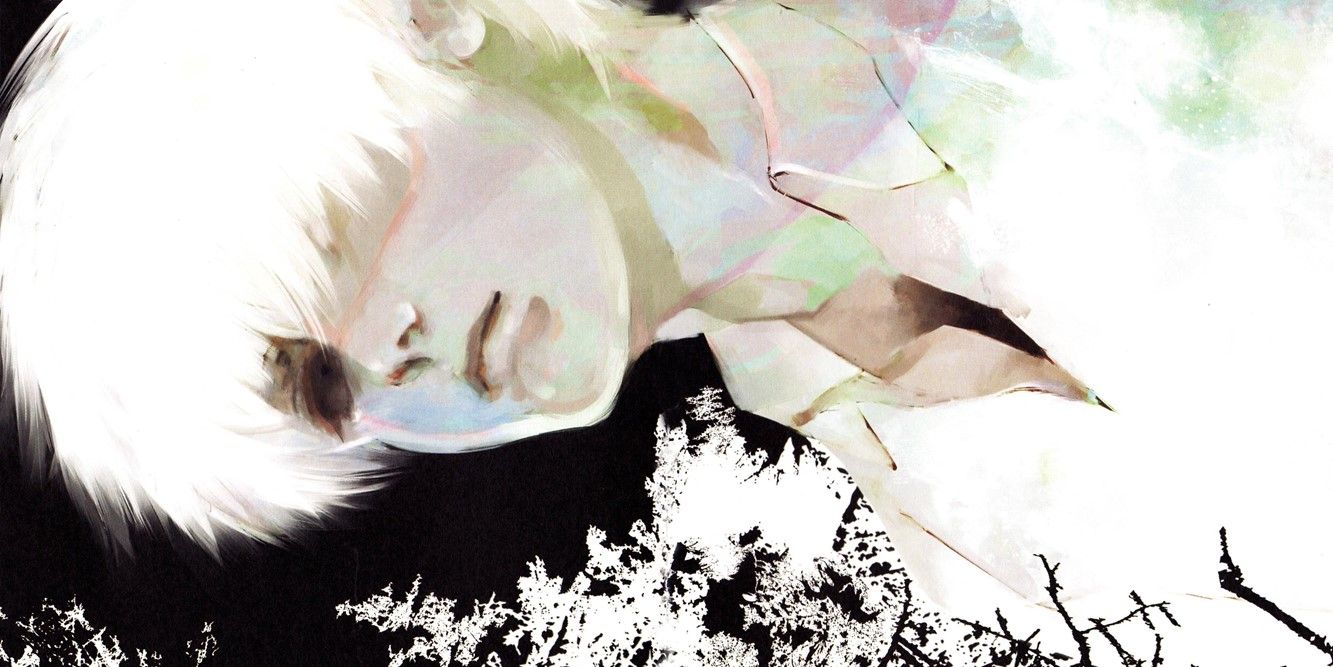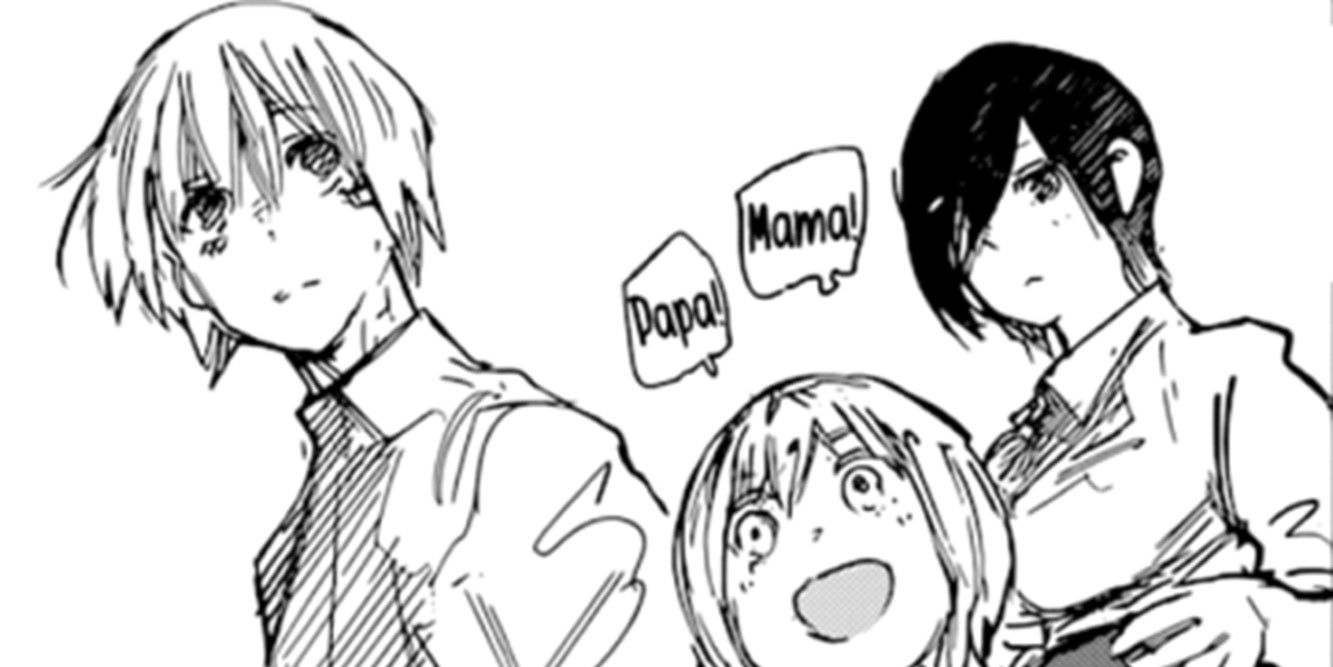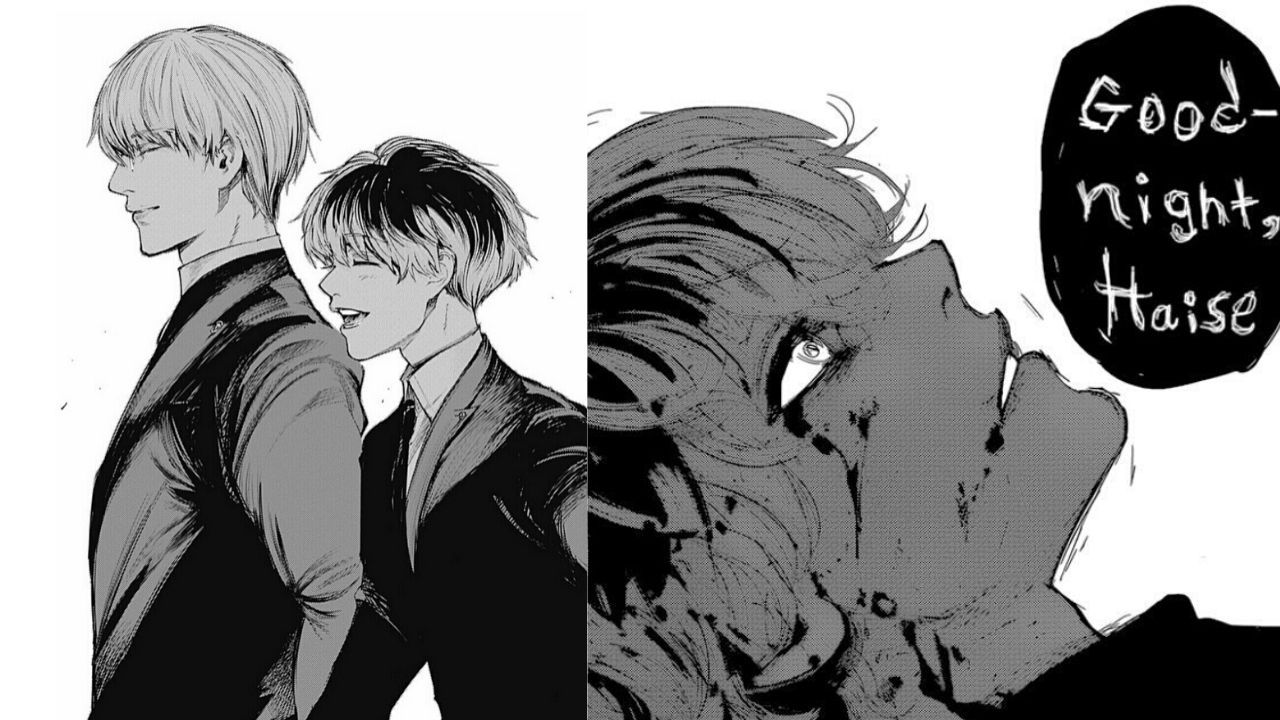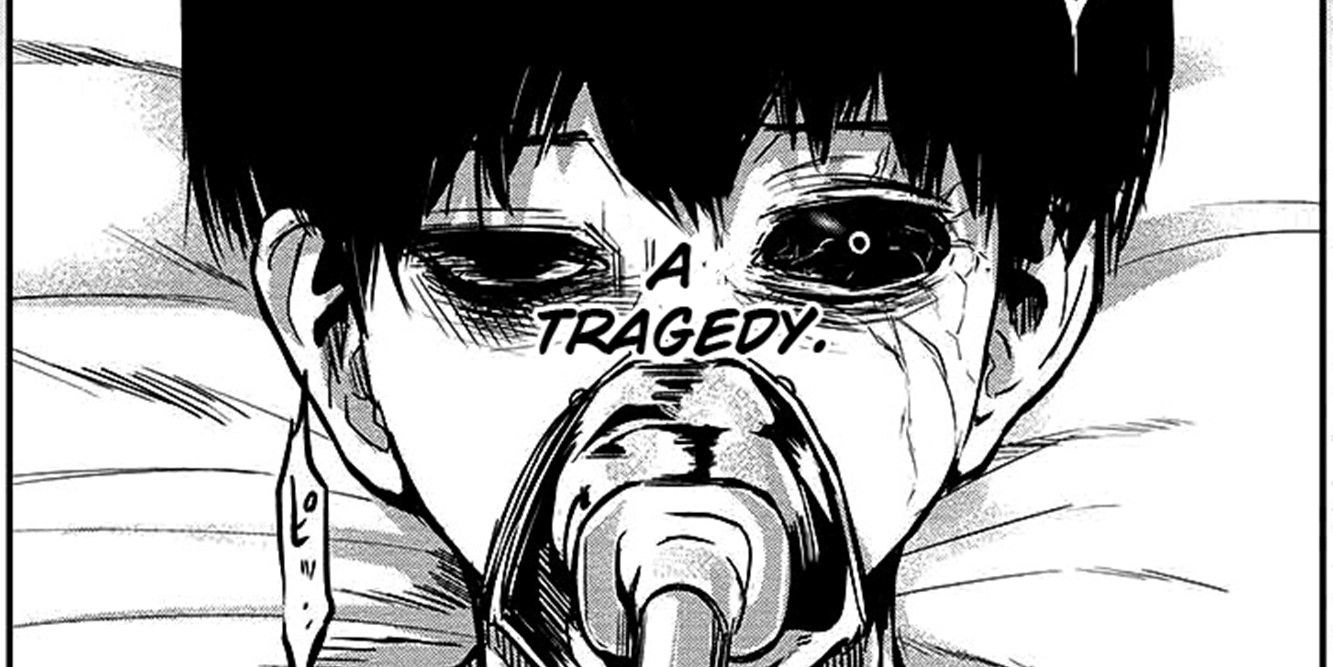WARNING: The following contains spoilers for Tokyo Ghoul :re Vol. 17 and Tokyo Ghoul :re Episode 24.
Tokyo Ghoul is a self-professed tragedy, so there was confusion when the ending to Tokyo Ghoul :re was anything but. Instead of a tragic ending, the final chapter of the manga (and final episode of the anime) treated fans to a pleasant time-skip into the future, more reminiscent of Naruto than a dark, seinen story. It certainly was a kind conclusion for Ken Kaneki, but fans have theorized there is a dark truth hidden behind all the smiles and laughs.
Despite differences in the anime and manga, they end the same way. After defeating "Dragon," Kaneki is swept up in a flood as the huge kakuja monster collapses. Luckily, he's saved by Ayato off-screen, and the next we see of him is in the final chapter, happier than he has ever been. He's miraculously survived, the city of Tokyo is recovering and he has a daughter named Ichika. The cast meet at Kaneki and Touka's house, all in high spirits. The chapter ends with Kaneki going on a cheery stroll with his family, remarking "what a beautiful day" on a grassy hill. The whole chapter is like a dream. As the theory would argue, the chapter is a dream, and the reality of Kaneki's story is far bleeker.
Ichika's hair is central to this theory. Tokyo Ghoul has long been into hair symbolism. When Kaneki's hair turned white after being tortured, it symbolized his acceptance of ghoulism and his loss of humanity. When, as Haise Sasaki, his hair was both black and white, it symbolized illusion. Through lying to himself and stripping away his memories, Sasaki was able to live happily (for a time) as part of the CCG. This period was a sweet dream for the protagonist. When Kaneki's memories return, he says, in one of the series' most recognizable quotes, "Goodnight, Haise. I've had enough of dreaming."
Ignoring RC cell shenanigans, there is no biological explanation for Ichika's black and white hair (in the manga, both Kaneki and Touka have black hair). It is likely an artistic decision, and if black and white hair symbolizes illusion, theorizers would argue that another one of Kaneki's dreams has manifested in Ichika. So, instead of surviving miraculously, Kaneki was swallowed up by Dragon and is never able to see his friends again. With all the emphasis Kaneki places on protecting people, it would be salt on the wound for Tokyo to not recover as seamlessly as it does after the time-skip. And, considering how the bleak the Dragon situation was looking, this did seem the more realistic outcome. Indeed, the biggest miracle of all would be Ichika. With the chaotic situation, Touka's injuries and the nigh-impossibility of giving birth to a half-ghoul child, Ichika's survival is the perfect symbol for Kaneki's impossible future.
There are a few other reasons why this theory is appetizing. First of all, Tokyo Ghoul can go to some very dark places, so a tragic ending isn't unexpected. There's also that fact that the original manga ended with Kaneki entering a dream-like state, so it would be consistent for Tokyo Ghoul :re to conclude similarly, even if it does dress itself up as a happy ending. Furthermore, "Beautiful Dream: Daybreak" (Tokyo Ghoul :re's twelfth episode, where Kaneki's first "dream" ends), seems vaguely connected to the "beautiful day" line rounding off the series. And, of course, Kaneki said long ago that his story is a tragedy. Perhaps this came to be after all?
Some have pointed out that the "tragedy" Kaneki cites at the beginning of the series could refer to only Tokyo Ghoul, and not its sequel, Tokyo Ghoul :re. It's also possible that the idea of a tragedy was displaced when the series became more popular. Sui Ishida (the mangaka) may have felt a tragic ending wouldn't be suitable for the best selling manga of the 2010s. In any case, fans can be content with the happy ending or place their theorizing caps on for some true tragedy.




